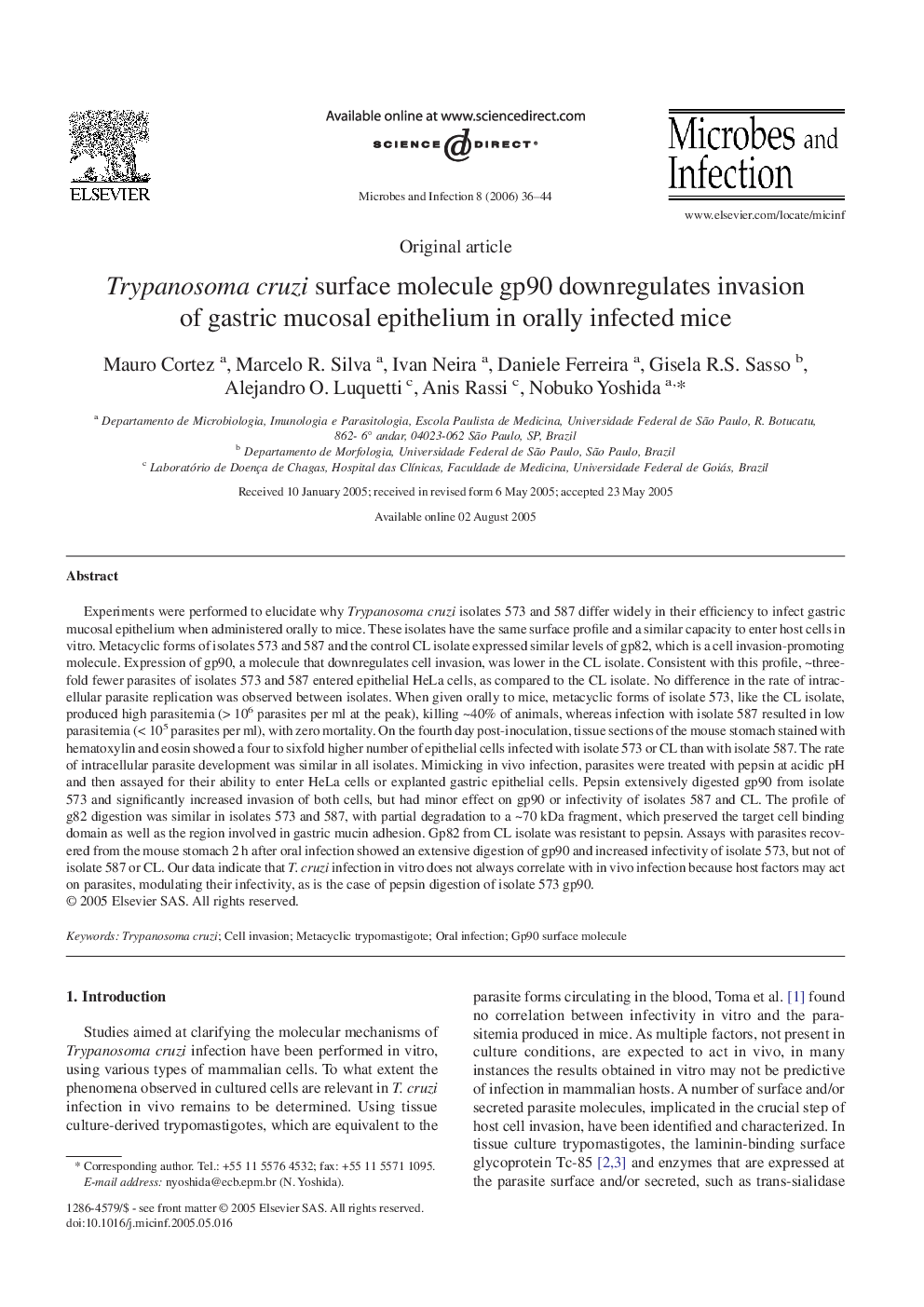| Article ID | Journal | Published Year | Pages | File Type |
|---|---|---|---|---|
| 3415707 | Microbes and Infection | 2006 | 9 Pages |
Abstract
Experiments were performed to elucidate why Trypanosoma cruzi isolates 573 and 587 differ widely in their efficiency to infect gastric mucosal epithelium when administered orally to mice. These isolates have the same surface profile and a similar capacity to enter host cells in vitro. Metacyclic forms of isolates 573 and 587 and the control CL isolate expressed similar levels of gp82, which is a cell invasion-promoting molecule. Expression of gp90, a molecule that downregulates cell invasion, was lower in the CL isolate. Consistent with this profile, ~threefold fewer parasites of isolates 573 and 587 entered epithelial HeLa cells, as compared to the CL isolate. No difference in the rate of intracellular parasite replication was observed between isolates. When given orally to mice, metacyclic forms of isolate 573, like the CL isolate, produced high parasitemia (>Â 106 parasites per ml at the peak), killing ~40% of animals, whereas infection with isolate 587 resulted in low parasitemia (<Â 105 parasites per ml), with zero mortality. On the fourth day post-inoculation, tissue sections of the mouse stomach stained with hematoxylin and eosin showed a four to sixfold higher number of epithelial cells infected with isolate 573 or CL than with isolate 587. The rate of intracellular parasite development was similar in all isolates. Mimicking in vivo infection, parasites were treated with pepsin at acidic pH and then assayed for their ability to enter HeLa cells or explanted gastric epithelial cells. Pepsin extensively digested gp90 from isolate 573 and significantly increased invasion of both cells, but had minor effect on gp90 or infectivity of isolates 587 and CL. The profile of g82 digestion was similar in isolates 573 and 587, with partial degradation to a ~70Â kDa fragment, which preserved the target cell binding domain as well as the region involved in gastric mucin adhesion. Gp82 from CL isolate was resistant to pepsin. Assays with parasites recovered from the mouse stomach 2Â h after oral infection showed an extensive digestion of gp90 and increased infectivity of isolate 573, but not of isolate 587 or CL. Our data indicate that T. cruzi infection in vitro does not always correlate with in vivo infection because host factors may act on parasites, modulating their infectivity, as is the case of pepsin digestion of isolate 573 gp90.
Related Topics
Life Sciences
Immunology and Microbiology
Immunology
Authors
Mauro Cortez, Marcelo R. Silva, Ivan Neira, Daniele Ferreira, Gisela R.S. Sasso, Alejandro O. Luquetti, Anis Rassi, Nobuko Yoshida,
